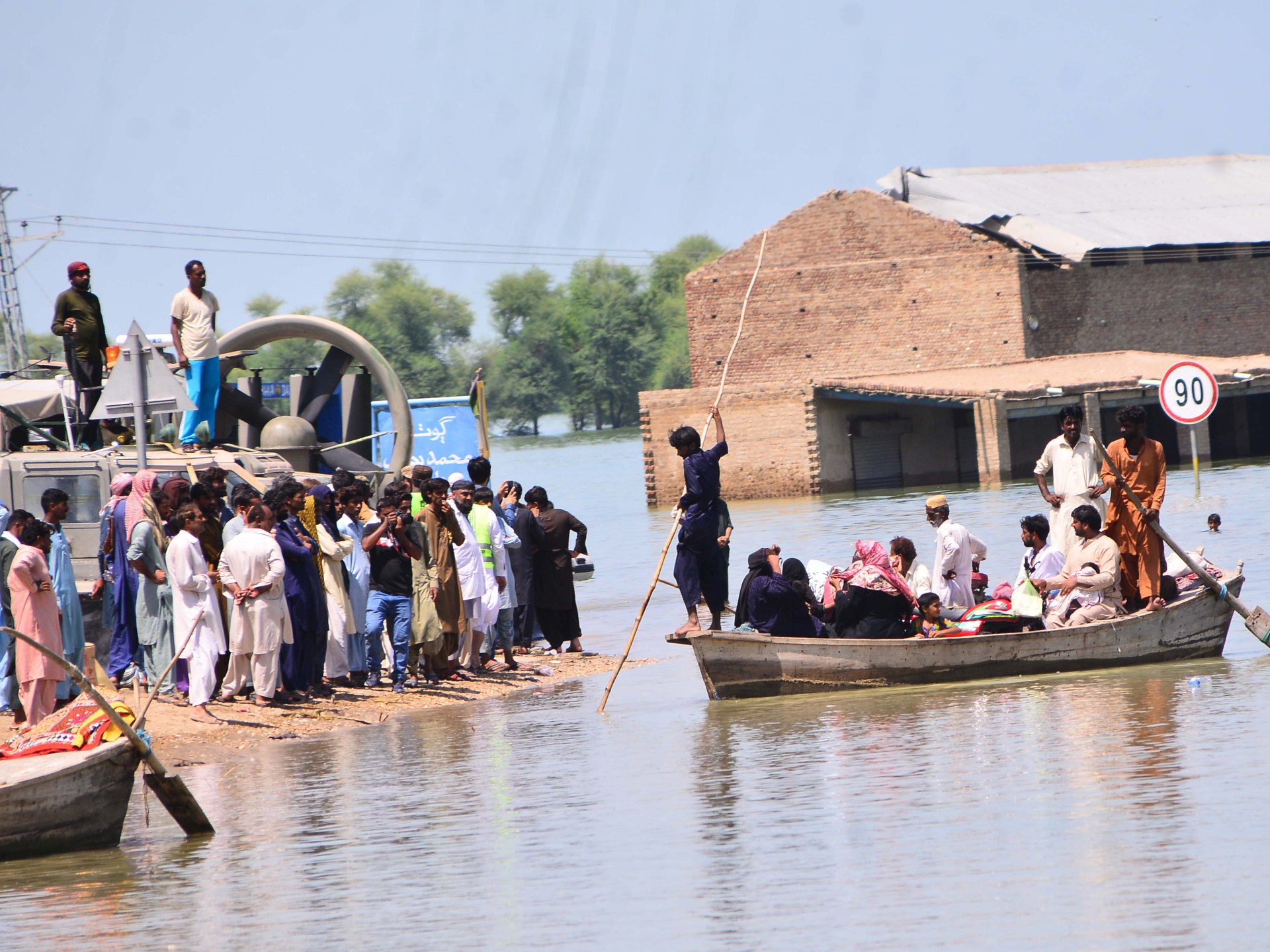Authorities in Pakistan drained water from the country's largest freshwater lake on Sunday, displacing up to 100,000 people from their homes, but saving more densely populated areas from collecting floodwaters.
Seasonal rains and melting glaciers on mountains in northern Pakistan caused floods that affected 33 million people and killed at least 1,290 people, including 453 children.
Sindh's Irrigation Minister said Lake Manchar, which is used to store water, had already reached dangerous levels and the increasing pressure was posing a threat to the surrounding areas in southern Sindh province.
He added that about 100,000 people will be affected by the discharge of the lake's water, but this will help save more communities and also reduce water levels in other, more affected areas.
More than 33 million people have been affected by the floods caused by monsoon rains, which have fallen "more than 10 times more than usual since mid-June."
Sindh province, with a population of 50 million, was the worst affected, with rainfall 464 percent higher than the 30-year average.
Officials said a large-scale outbreak of waterborne diseases and snakebites was negatively affecting hundreds of thousands of flood survivors.
Doctors are currently treating about 150,000 patients for diarrhea, more than 100,000 people for skin infections, and thousands with symptoms of malaria, in makeshift clinics.

